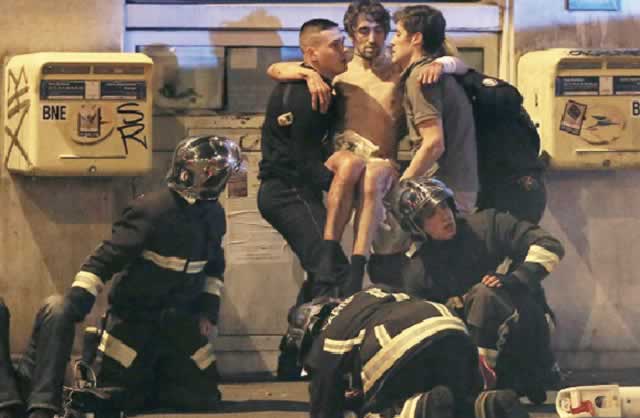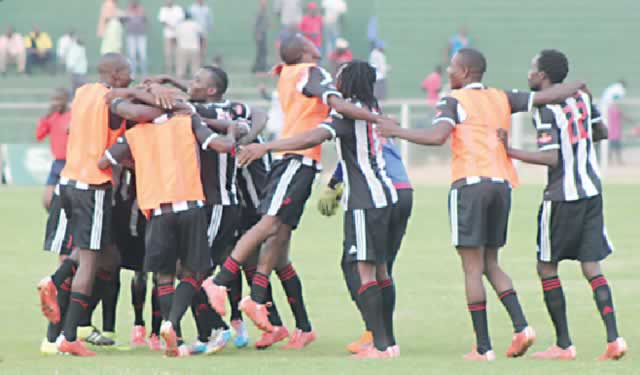French police identify first attacker in Paris killings

French police have identified the first attacker involved in a series of assaults across Paris, which left at least 129 people dead and wounded hundreds more.
Omar Ismail Mostefai was a 29-year-old Paris native whose detached finger was found overnight at the Bataclan concert hall, the scene of the bloodiest attack.
The French citizen had been known to police for his alleged links to armed groups but had not been previously linked to violent activities. Police are also holding six of Mostefai’s relatives.
Stepping up their hunt for information following the killings, authorities found several AK47 assault rifles in the back of an abandoned Seat car in an eastern suburb of Paris.
Witnesses said the car, found in Montreuil, was used by attackers at multiple locations on Friday night.
French authorities believe the attacks were planned abroad by the Islamic State of Iraq and the Levant (ISIL) group, but have not yet confirmed the identities of others involved.
ISIL purportedly claimed responsibility for the attacks shortly after the incident but has also not revealed the identities of the attackers.
Investigators in France, Belgium, Greece and Germany are trying to identify the seven attackers and their accomplices.
In Belgium, police arrested several people over their alleged links to the attacks. Koen Geens, Belgian justice minister, said those arrested were detained in connection with a grey Volkswagen Polo that was rented in Belgium but found near the scene of the attack. Witnesses said some of the attackers arrived in a car carrying Belgian plates.
Greek authorities have also confirmed that a man who died in the attacks with a Syrian passport found next to him had registered as a refugee on the island of Leros in October.
Police said the passport had been found near the body of one of the attackers.
German police arrested a man on November 5 after machine guns, hand guns and explosives were found in his vehicle during a routine check on a motorway.
Horst Seehofer, Bavaria’s state premier, said there was reason to believe he had links to the attackers, and that the case “shows how important it is for us to have some clarity on who is in our country”.
The attacks have intensified debate on Europe’s response to the refugee crisis. Marie Le Pen, the leader of France’s far-right National Front party, has called for a tightening of the country’s borders.
Al Jazeera’s David Chater reporting from Paris yesterday, said security services will be concentrating on how the perpetrators were able to get themselves and their ammunition into France without being noticed. “The intelligence services will be looking at the blind spots in their system that allowed ISIL to get through their net — exactly where did they get their weapons, how did they get their ammunition, and has the Schengen system made the whole of Western Europe vulnerable.”
The attacks have also led to an outpouring of solidarity among France’s allies, with thousands attending marches and memorials outside French embassies and consulates across the world.
A state of emergency has been declared across France after attacks in Paris killed at least 128 people, in what President Francois Holland said was an “act of war” organised by the Islamic State of Iraq and the Levant (ISIL) group.
The ISIL group released an undated video on Saturday threatening to attack France if bombings of its fighters in the Middle East continued.
The group’s foreign media arm, Al-Hayat Media Centre, made the threat through a man who called on French Muslims to carry out attacks.
“As long as you keep bombing you’ll not live in peace. You’ll even fear travelling to the market,” said the bearded Arabic-speaking man, flanked by others.
Reports also said that Paris has cancelled all public transportation services including the Metro on Saturday, as French newspapers decried a “War in the heart of Paris” with black mastheads.
The deadliest attack was on the Bataclan, a popular concert venue where the California rock group Eagles of Death Metal was performing.
The concert hall is just a few hundred metres from the former offices of the satirical weekly Charlie Hebdo, target of a deadly attack by gunmen in January.
Yesterday special church services were held at Notre Dame Cathedral in Paris and around France in honour of the 129 people killed in the attacks.
Notre Dame, like other Paris sites, was closed to tourists yesterday but was open to church-goers coming for services during the day.
A special Mass by Paris Cardinal Andre Vingt-Trois was held at 1830hrs for families of victims and survivors, and the church rang its renowned bells in a special homage. French Muslim groups have firmly denounced the attacks, claimed by the Islamic State group. Some are concerned they will prompt a backlash against France’s overwhelmingly moderate Muslim community. — AFP/Al Jazeera












Comments